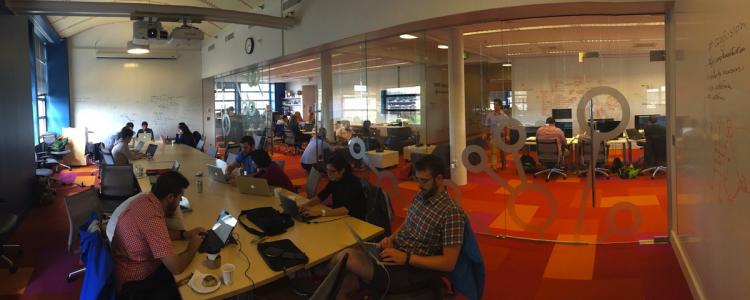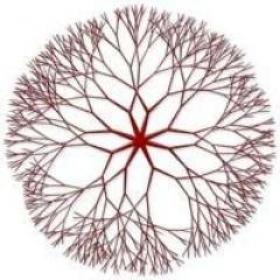Neurohackweek will be held at the UW eScience Institute September 4th-8th, 2017. In this workshop, young scientists learn about technologies used to analyze human neuroscience data, in order to create openly available data-sets for research and replication of results. UW's Dan Peterson reflects on his experience last year.
Guest post by Dan Peterson, Research Scientist, UW Integrated Brain Imaging Center
Last September, I participated in a new kind of scientific meeting. Well, it was new to me. It’s called Neurohackweek, a hybrid of a conference and a workshop. It’s also similar to events called “Hackathons” that have become popular in the private sector. The first thing that I noticed when I looked over the agenda was the great amount of unstructured time. Huge blocks of time were simply labeled “Open Hacking.”
When I arrived, there were a few of us that were local, but most were from all over the country, or further. At our initial meeting, we went around the room and introduced ourselves. It started as an initial pro-forma exercise, but as people said a few words about where they were from and what they work on, it became clear that everyone there was sharp, curious, and involved in cutting-edge neuroinformatics. They came from a variety of background and departments, and included students, staff, and faculty.
The program included software tutorials and scientific lectures, but a large part of it was working on a project. The idea was that projects are pitched to everyone, and then people self-assemble into small groups and work on them throughout the week. Some of them used machine learning, others involved software development, and a few were about interactive data visualization. The project that I worked on was an automated method to get a 3D printed brain from that structural data contained within a person's MRI scan.
There was a strong atmosphere of community, as we stayed up late hacking and hammering these new systems into something that worked. It was great to have so many experts in the room - if you were running into problems, they could usually diagnose and fix it immediately.
Many of the organizers are active in the “Open Science” movement. In recent years, there has been a wide recognition that a lot of work in psychology and neuroscience has not been replicated, either through the lack of publicly available data and tools, or through a lack of incentives for researchers to do so. Many of the software systems and analysis techniques taught at Neurohackweek make it easier for researchers to make their work transparent and sharable.
I learned about some systems that I use regularly, and I'm still in touch with researchers I met there. A few of our projects have matured into useable tools and published manuscripts. I saw on Twitter that someone had 3D printed their brain using my project, which is really neat:
I wish my frontal lobes worked this well irl. Printed using https://t.co/jOSeQTc2Mr (thanks @danjonpeterson !) pic.twitter.com/jHdoWDmuPe
— Eshin Jolly (@Eshjolly) January 11, 2017
It's happening again this year. I won’t be going, as the organizers are discouraging repeat applicants, but I would advise anyone who works in this field to apply (by April 18th). The application is short, and they are looking for people with a variety of abilities. Don’t worry if you’re underqualified - the whole point is to find people to teach things to! All in all, it was a valuable experience.
Info/application: https://neurohackweek.github.io/






